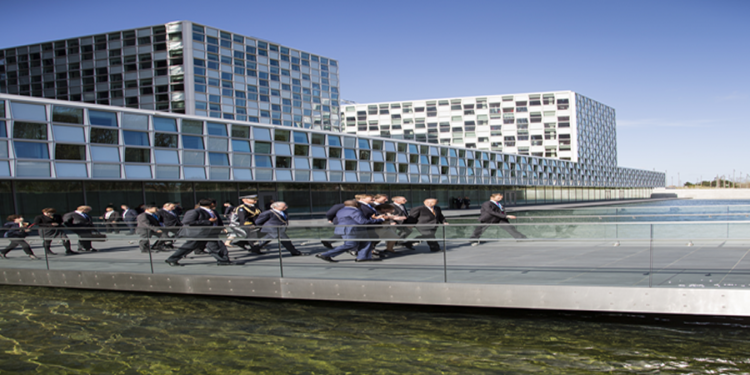Tomorrow 09-16.00: Courtroom III/Trial Hearing in the Laurent Gbagbo and Charles Blé Goudé Case
Laurent Gbagbo is the former president of Ivory Coast. Charles Blé Goudé, a close ally of Gbagbo, was the youth and employment minister in Gbagbo’s government and the leader of the Young Patriots, a pro-Gbagbo militia group.
The International Criminal Court (ICC) has charged both men with individual criminal responsibility on four counts of crimes against humanity: murder, rape and other forms of sexual violence, other inhumane acts, and persecution.
The charges relate to the 2010-2011 post-election crisis in Côte d’Ivoire, when Gbagbo refused to accept the victory in the November 10 presidential election of Alassane Ouattara. Gbagbo’s refusal to leave office led to an armed conflict during which at least 3,000 civilians were killed and more than 150 women were raped, with serious human rights violations by both sides.
Ivorian authorities captured Gbagbo on April 11, 2011. He remained in custody in Côte d’Ivoire until his transfer to The Hague in November 2011. The Ivorian authorities surrendered Blé Goudé to the ICC in March 2014.
In March 2015, the ICC Trial Chamber joined their cases since the two men’s conduct in the crimes alleged is “closely linked.” The Trial Chamber also explained that, according to the prosecution, largely the same evidence will be presented in both cases.
Gbagbo is the first former head of state to be tried by the ICC. His trial sends the message that the reach of justice extends to even the most powerful people when they commit the worst crimes.
The ICC has alleged that Blé Goudé was part of Gbagbo’s “inner circle,” which devised a plan to maintain Gbagbo as president by any means, including using force against civilians. The joint trial should therefore shed light on the power structure in Côte d’Ivoire that led to the commission of mass abuses during the 2010-2011 post-election crisis.
Thomas Ntaganda Case: Courtroom III: 16:30 – 17:00
The ICC issued its first arrest warrant for Ntaganda in August 2006. He is facing 13 counts of war crimes and 5 counts of crimes against humanity for alleged murder, rape, and sexual slavery; recruiting and using child soldiers; and pillaging committed in Ituri, Congo in 2002 and 2003. Between 2006 and 2013, troops under Ntaganda’s command continued to commit war crimes and crimes against humanity. Ntaganda surrendered to the United States embassy in Kigali, Rwanda in March 2013 after his then-rebel force, M23, broke apart.
Ntaganda is the fourth person to be prosecuted at the ICC for grave crimes in Congo. A fifth ICC arrest warrant is pending against General Sylvestre Mudacumura, the military leader of a largely Rwandan Hutu armed group active in Congo, the Democratic Forces for the Liberation of Rwanda (FDLR).







